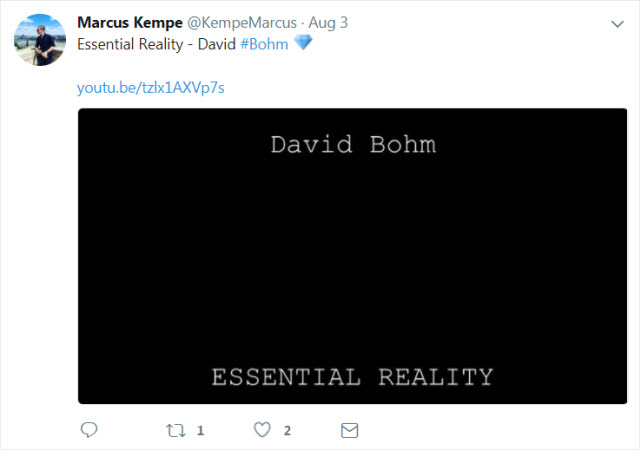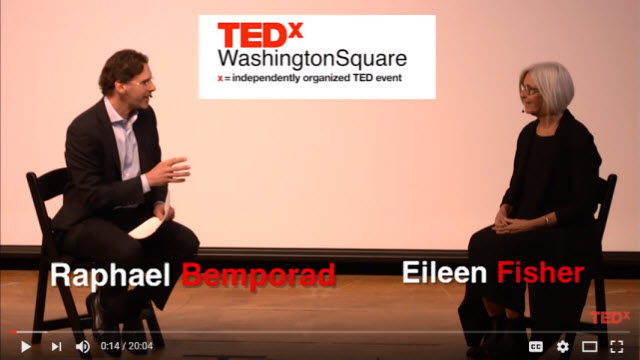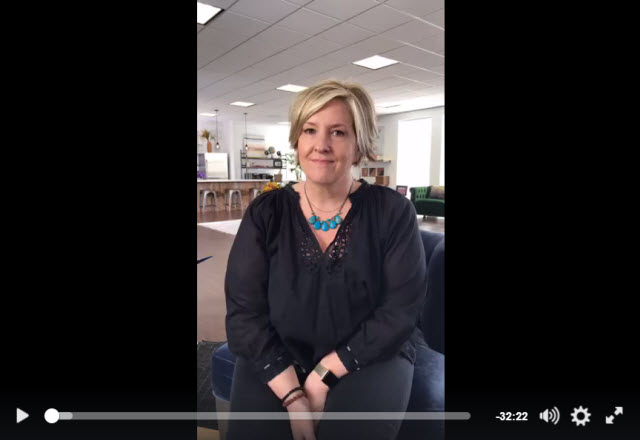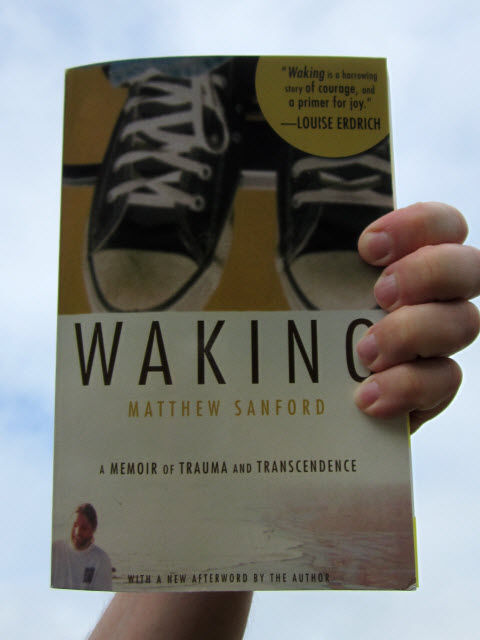This is a post in my series on organizing ”between and beyond.” Other posts are here. This is a retrospective of what has happened during the week. The purpose is to reflect on the work itself. Here is my previous retrospective. Here is my next retrospective.
What has happened? What needs to be done?
This is a retrospective not only of the last week but of what has happened so far in August. I have been very busy doing other things than working on this series the last few weeks.
Anyway, here is an interesting interview with David Bohm on Bohmian dialogue and the nature of thought, which showed up in my tweet flow via Marcus Kempe (@KempeMarcus).

Another tweet pointed me to the following words by James Kavanough.1 I am one of the searchers.
I am one of the searchers. There are, I believe, millions of us. We are not unhappy, but neither are we really content. We continue to explore life, hoping to uncover its ultimate secret. We continue to explore ourselves, hoping to understand. We like to walk along the beach, we are drawn by the ocean […] We like forests and mountains, deserts and hidden rivers, and the lonely cities as well. Our sadness is as much a part of our lives as is our laughter. To share our sadness with one we love is perhaps as great a joy as we can know – unless it be to share our laughter.
We searchers are ambitious only for life itself, for everything beautiful it can provide. Most of all we love and want to be loved. We want to live in a relationship that will not impede our wandering, nor prevent our search, nor lock us in prison walls; that will take us for what little we have to give. We do not want to prove ourselves to another or compete for love.
For wanderers, dreamers, and lovers, for lonely men and women who dare to ask of life everything good and beautiful. It is for those who are too gentle to live among wolves.
A person who caught my interest this week is Eileen Fisher. Here is her view on Leadership: The Personal Side of Organizational Change. And here is her TEDx talk in the form of a dialogue with Raphael Bemporad on Practicing Change. Eileen Fisher says at the end of the TEDx talk that:2
What’s so interesting to me is that it isn’t about changing the world out there, it’s about how we show up. It’s about […] all those little moment to moment choices where we need to let go of those things that trigger us, and distract us, and confuse us, and keep centering ourselves to what is our unique voice or gift in that exact moment.

Brené Brown is also a person well worth listening to. Here is a Facebook Live video where Brené says what is painfully obvious, that we give lip service to how all men are created equal. She also points out that we must talk about it in the most pointed, uncomfortable, and honest way. Among other things she says that:
The stories that we don’t own collectively, own us.
There is no evidence anywhere that power over is effective.
Every time we dehumanize someone it rips a little piece of our soul apart.

I finished reading two books this week:
- The first one is Waking: A Memoir of Trauma and Transcendence by Matthew Sanford. Matthew was in a car accident at the age of thirteen which left him paralyzed. This is a book about stepping more deeply into our lives, staying open to our own experience. Matthew discovered, for example, that if he listens inwardly to his whole experience, he can actually feel into his legs. It’s a fascinating book. Here is my book review.

M. Sanford, Waking. - The second is Before Philosophy: The Intellectual Adventure Of Ancient Man by H. Frankfort, H. A. Frankfort, J. A. Wilson, and T. Jacobsen. The authors concentrate on two old civilizations, those of Egypt and Mesopotamia. As villages grew into city-states and national states, authority and power became centralized. There was a movement from democracy, where a general assembly had the political power, to kingship. I find it most revealing that no human institution had as its primary aim the welfare of its own human members. The view was the humans were created especially for the benefit of the gods—and the king was god.3
What was good? What can be improved?
I make progress but would like to spend more time on the work with this series.
Notes:
1 James Kavanough, There are Men Too Gentle to Live Among Wolves.
2 Eileen Fisher, A Dialogue on Practicing Change, TEDxWashingtonSquare, at 17:56 (accessed 2017-08-20).
3 H. Frankfort, H. A. Frankfort, J. A. Wilson, T. Jacobsen, Before Philosophy: The Intellectual Adventure Of Ancient Man (Pelican Books, 1949), p. 200.
Related posts:
Organizing in between and beyond posts
Leave a Reply
You must be logged in to post a comment.